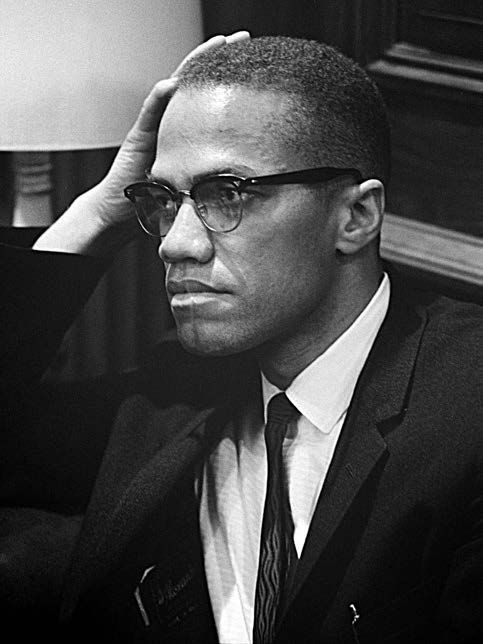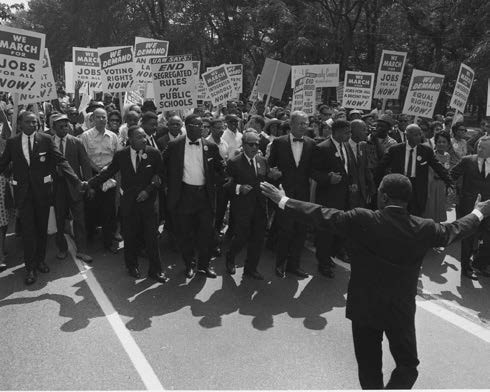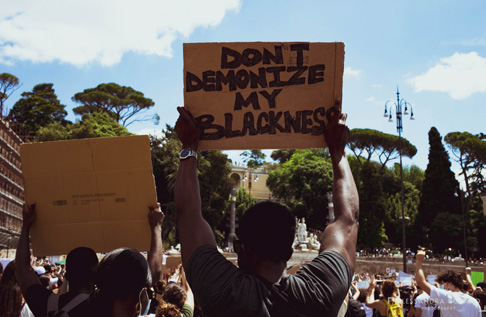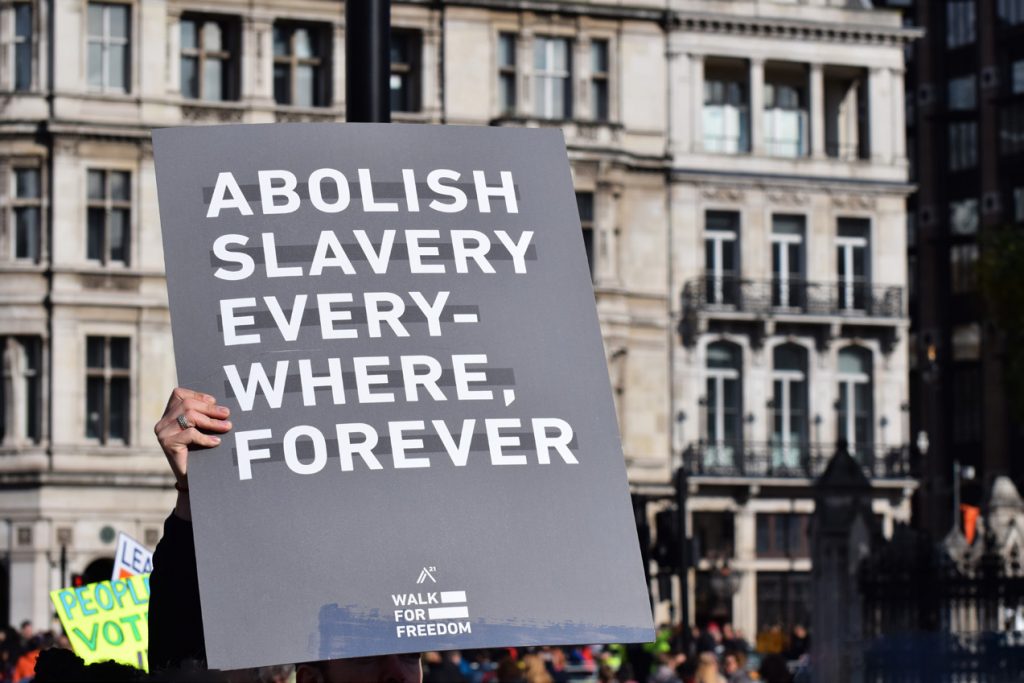
Photo by Marion S. Trikosko
Library of Congress Prints and Photographs division
Wikimedia Commons
The legal abolition of slavery did not lead to the total emancipation of former slaves. The stigma of servile ancestry is still present in many African contexts: marriages between descendants of slaves and free people are often ostracised and descendants of slaves may be denied access to the best land or important political positions. The denunciation of this discrimination is now at the centre of the political agenda of a number of movements in various Sahel countries, including Mali, Mauritania and Niger.
In the southern United States, racial segregation policies lasted at least until the 1960s, when the African-American civil rights movement succeeded in repealing the laws which denied blacks the right to vote and sanctioned the division between facilities and services for blacks and whites.
Inspired by figures such as Martin Luther King (1928-1968) and Malcolm X (1925-1965), these movements convinced Washington to pass the Civil Rights Act in 1964 and the Voting Rights Act in 1965, two laws which marked the end of segregation in the United States

On that occasion Martin Luther King gave his famous speech «I Have a Dream» National Archives and Records Administration (NARA) at College Park
Wikimedia Commons
However, racial discrimination is not over and the contemporary heirs of those movements, such as Black Lives Matter, born in 2013, have continued to denounce both the economic inequalities persisting between whites and blacks and the racism which pervades large sectors of US society, police and the justice system.

Photo: The All-Nite Images, NY, USA
Wikimedia Commons
The killing by suffocation of George Perry Floyd in Minneapolis on 25 May 2020 at the hands of a police officer triggered new riots and demonstrations which also had an echo throughout the whole of Europe, where a series of statues of figures involved in the slave trade or colonial exploitation were defaced, destroyed or removed.
Photo by Alessandra Notaro
Wikimedia Commons
Photo A. Amani
Shutterstock

